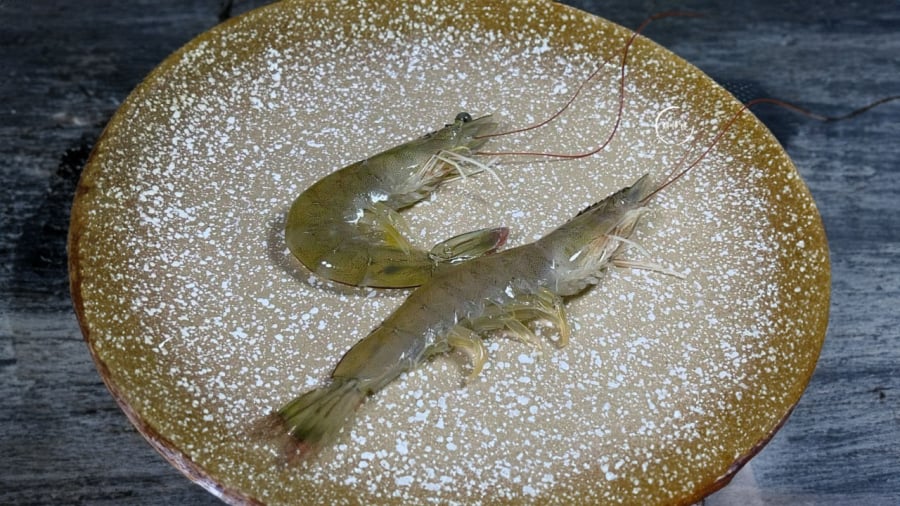Seafood (crabs, shrimp, fish, and squid) is a delicious and nutritious treat, but the distinct odor of seafood can linger in your kitchen and even permeate your entire home, especially in smaller or enclosed spaces. However, with these simple yet effective tips, you can effectively eliminate the fishy smell, preserving the unique flavor of seafood without compromising your living space.
Why Does Seafood Smell Fishy?
The fishy odor in seafood is primarily due to the presence of trimethylamine oxide (TMAO) found in fish, shrimp, and squid. As seafood begins to decompose, TMAO transforms into trimethylamine (TMA), a volatile compound with a strong and recognizable putrid smell. Additionally, blood, internal organs, the black membrane in the belly of fish, and other contaminants inside shrimp and crab can also contribute to the unpleasant odor if not cleaned properly.

Here are some tips to eliminate the fishy smell from each type of seafood:
How to Remove the Fishy Smell from Seafood
Seafish like mackerel, saury, tuna, and sardines are often frozen before reaching consumers, and improper storage can make them smell fishier than usual. To effectively eliminate the fishy odor:
- Clean and remove the internal organs, paying close attention to the blood along the spine and the black membrane in the belly, as these are the main culprits of the fishy smell.
- Soak the fish in a dilute salt water solution for about 5-10 minutes, then rinse with clean water.
- Use ginger wine or green tea to wash the fish. Green tea helps remove the odor and firms up the fish meat, making it more flavorful. If fresh tea leaves are unavailable, you can use diluted tea.
- When stewing the fish, add a few tea leaves or some tea to eliminate the fishy smell and enhance the color of the dish.

Tips to Remove the Fishy Smell from Sea Shrimp
Sea shrimp usually has a milder odor than fish, but if not stored properly, especially when frozen for an extended period, the fishy smell can become prominent. For proper shrimp preparation:
- Cut off the whiskers, tail, and back thread—this thread contains waste, which can make the shrimp smell foul or rancid.
- Soak the shrimp in a mixture of salted water, a little sugar, and white wine for a few minutes. This method not only removes the fishy smell but also makes the shrimp meat red, sweet, and firm when cooked.
- Opt for live shrimp with bright colors and firm bodies.

How to Deal With the Fishy Smell of Squid
Squid is easy to cook but has a distinct fishy odor if not prepared properly. After cleaning the squid, you can soak it in green tea or ginger wine. Green tea not only eliminates the fishy smell but also makes the squid meat softer and more fragrant. Remember to remove the ink bag, eyes, and teeth to avoid bitterness and any unpleasant odors.
How to Clean and Remove the Fishy Smell from Sea Snails
Sea snails live on the seabed and can easily collect sand and mud, which can cause a strong odor if not rinsed properly. Rinse the snails multiple times with cold water, then soak them in diluted salt water or rice washing water with a few slices of chili peppers to help them expel the sand. When boiling the snails, add lemongrass, ginger, lemon leaves, and white wine to create an attractive aroma and significantly reduce the fishy smell.
Tips to Remove the Fishy Smell from Crab and Crayfish
Fresh crab and crayfish have a mild fishy odor, but if they are dead or refrigerated for a long time, the smell can become unpleasant. After cleaning, marinate the crab and crayfish with wine and crushed ginger for about 10-15 minutes before steaming. When steaming, add lemongrass and lemon leaves to enhance the natural fragrance and mask the fishy smell.
Additional Tips for Preparing Seafood Without the Fishy Smell
- Keep the lid open while cooking: The compounds that cause the fishy smell are more likely to evaporate when cooking without a lid.
- Use odor-masking spices: Ginger, lemongrass, pepper, chili, lemon, tamarind, vinegar, shallots, and coriander are all spices that help mask the fishy smell and make the dish more appealing.
- Choose fresh seafood: Fresh seafood always has a milder odor than frozen seafood. If possible, prepare it immediately after purchasing.
- Rinse thoroughly with clean water: This is especially important for slippery seafood like sea fish or octopus. Add a few drops of cooking oil when rinsing to remove the slime effectively.
Eliminating the fishy smell when cooking seafood is not difficult if you know the right techniques. With just a few easily accessible ingredients and some simple preparation tips, you can fully enjoy the flavors of the sea without worrying about lingering odors in your kitchen. Keep these secrets in mind and apply them the next time you cook seafood for a delicious and odor-free experience.






























